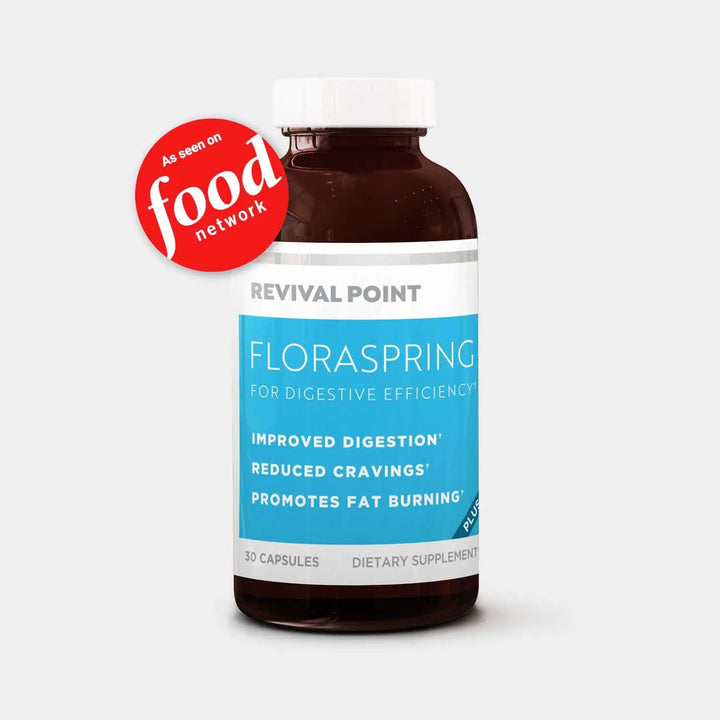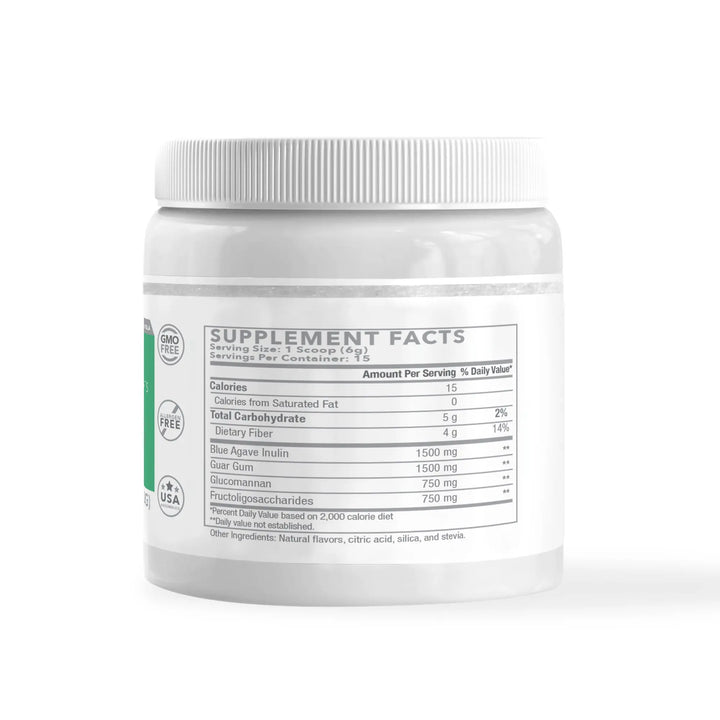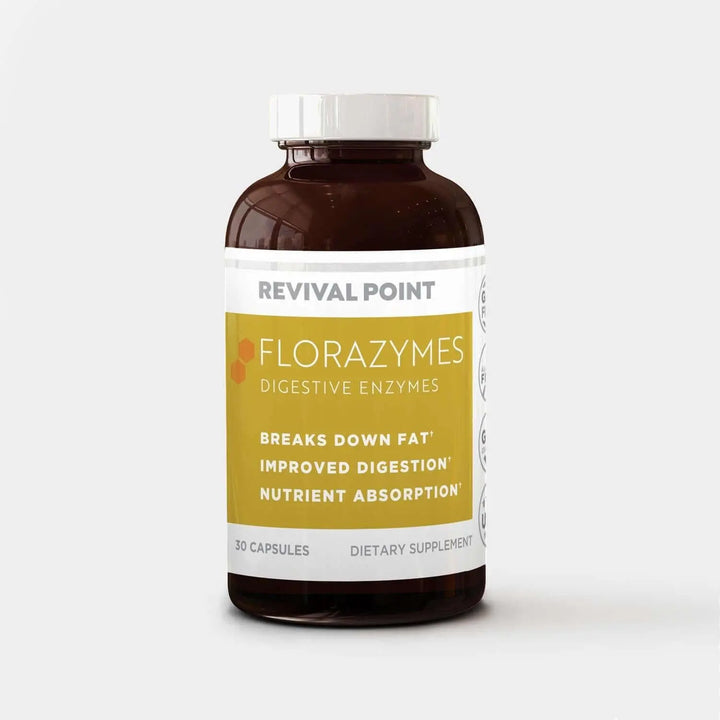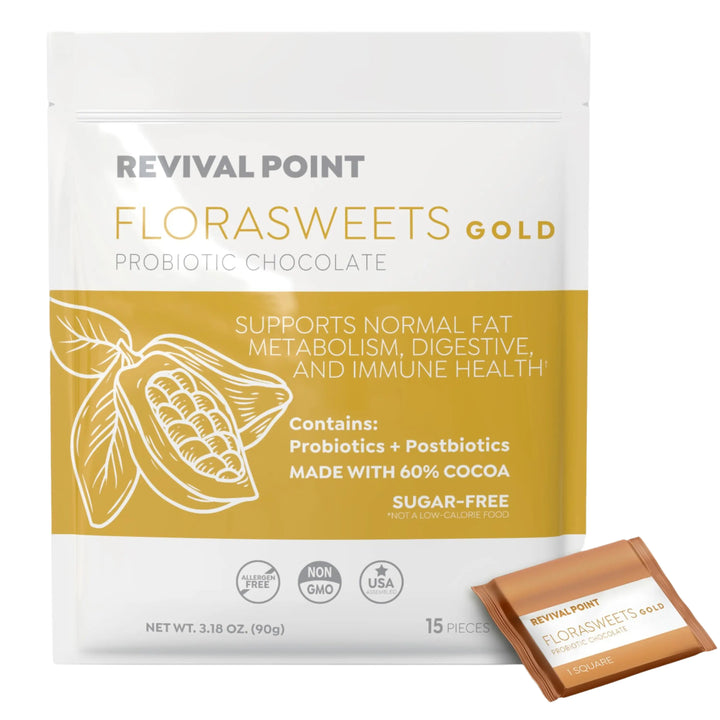Gas.
It’s not something you like to think about, talk about, or experience. Yet sometimes, you feel like you are so full of air you’re going to burst.
There are many causes of gas. Fortunately, in some cases, it’s preventable.
Get comfy… and we’ll explore some ways you can avoid that bloated and very uncomfortable gassy feeling.
1) Don’t Eat Too Quickly
You might burp some out, but a little air will make its way to your large intestine when you eat. The large intestine creates gas when it breaks down your food.
TRENDING: Science Reveals Easy, No-Workout Ways to Lose Weight… While You Snooze!
Solution: Don’t eat too fast. If you’re like me, you can get excited to eat… and end up shoveling food into your mouth a bit too fast.
It’s important to eat slowly and chew A LOT to aid digestion and avoid gas.
2) Avoid Gas-Causing Foods & Beverages
Beans, onions, cauliflower, Brussels sprouts, and broccoli are well-known gas causers. However, not all foods that cause gas are so popularly known.
Other, lesser known foods that produce gas include dairy products like yogurt, cheese, and ice cream. Fruits like pears, apples, and peaches… as well as grains such as whole wheat and bran may also make you gassy.
Fatty foods, processed foods, and lentils cause gas, too.
Solution: You may not be affected by all of the aforementioned foods. Every person’s body is different.
You can eliminate one food at a time (for at least two weeks) to determine if one or more is making you gassy.
Of course, certain beverages can result in gas, too. Carbonated drinks like soda are obvious culprits. Beer also makes you produce gas.
Milk, pear and apple juice, fruit punch, and any fruit drink have the potential to create gassy mayhem.
Solution: As with foods, you can try eliminating one beverage at a time to figure out if one of them is making you gassy.
Floraspring® Probiotics (25 Billion CFU's)

$177.00
$209.85
Floraspring® is a probiotic specifically designed with 15 science-backed probiotic strains INCLUDING 5 SUPER STRAINS for a complex balance support for weight, management, digestive health, and suppression of cravings.* 25 Billion Powerful Colony-Forming Units (CFUs) 15 Scientifically Backed Probiotic Strains… read more
3) Don’t Talk While Eating
Refraining from talking while you’re eating is not only good manners… but it can actually help reduce gas.
It makes sense, though. If you talk while you eat, it’s likely that extra air enters your mouth and is then swallowed with your food.
Solution: Take a brief break from eating when you want to say something at the dinner table.
4) Ditch Drinking Straws
Who would have imagined that drinking with a straw would lead to gas?! The problem is that when you use a straw, air enters your mouth along with your beverage.
And that extra air can contribute to extra gas.
Solution: This one is simple: no straws.
5) Give Up Gum & Hard Candy
Wow! Who knew that an innocent piece of gum or some tasty hard candy would make you gassy?
Now, the problem isn’t actually that you’re chewing gum or enjoying a hard candy. The problem is that many gums and hard candies contain artificial sweeteners.
Those artificial sweeteners are the one to blame when it comes to feeling gassy and bloated. Sorbitol, mannitol, or xylitol can result in excess gas.
Solution: If you find you’re gassy after chewing gum or sucking on candy, you might want to pass on those treats.
If you don’t want to totally give up your gum or hard candy… simply check for artificial sweeteners on the labels.
6) Watch Out For Sugar & Sugar Substitutes
Delicious sugar is responsible for yet another problem. Bummer.
High-fructose corn syrup in particular is a notorious gas producer. Watch for HFCS on all food and drink labels, since it tends to sneak into way more foods than you would expect.
Be on the lookout for artificial sweeteners, too. Sorbitol, xylitol, and mannitol cause gas.
SPECIAL: This Scientific Trick Can Reduce Your Belly Fat By 8.5% in Just 12 Weeks...
7) If You Have Dentures, Make Sure They’re Properly Fitted
This one doesn’t even seem fair… Many people need dentures… and it turns out that those dentures can cause gas.
If your dentures don’t fit properly, you will likely swallow excess air while you eat. And that excess air can lead to excess flatulence and uncomfortable bloating.
Solution: Make sure your dentures fit properly. If you suspect that your dentures might not fit exactly right… make an appointment with your dentist or denturist.
Floraboost Prebiotic Powder

$54.95
$69.95
Floraboost is combination of all-natural sources of prebiotic fiber which are the best shown by science to help support good microbe strains in the digestive system as well as reduce cravings. Prebiotics "feed" good probiotic bacteria in the gut. With… read more
8) Quit Smoking
Seems like anything you put in your mouth is accompanied by air that has the potential to turn into uncomfortable gas. This goes for smoking, too.
However, when you consider all of the terrible and fatal illnesses that smoking can cause… excess gas seems to be the least of a smoker’s worries.
Asthma, cancer, COPD, diabetes, gum disease, heart disease and stroke, HIV, depression, anxiety, and vision loss are prevalent among smokers. Now you know you can add gas to the list of things caused by smoking.
Solution: Quit smoking! Not only can it cut down on your gas and bloating… but your health (and your wallet) will also thank you.
9) Check For Food Intolerances
If your body has a food sensitivity or cannot properly digest certain foods… you are likely to have uncomfortable bloating and gas when you eat those foods.
Here are a few common food intolerances and sensitivities that could be causing excess gas:
Celiac Disease
If you have celiac disease, it means your body can’t digest wheat or other grains that contain gluten. Gluten is a protein found in rye, wheat, and barley.
If you feel gassy after eating grains, you could try eliminating gluten from your diet. You might also ask your doctor to test you for celiac disease.
Solution: A gluten-free diet. Most grocery stores have a great deal of gluten-free products now available. You can also make your own gluten-free recipes.
BRAND NEW: These Delicious Desserts Can Help You Burn Fat & Lose Weight
Lactose Intolerance
If your body can’t break down the sugar in milk (lactose), you are lactose intolerant.
Do you feel gassy and sick when you consume dairy? That could be why.
Solution: Switch to a lactose-free diet. Grocery stores carry a multitude of lactose-free and non-dairy products.
If you feel life isn’t worth living without the occasional dairy treat, there are over-the-counter products you can take just before consuming dairy that will help you digest lactose… and avoid getting gassy or experiencing the other unpleasant side effects of consuming lactose.
The FODMAP Diet For Food Sensitivities
The low FODMAP diet is often recommended for people who have irritable bowel syndrome (IBS). This condition can cause gas, diarrhea, constipation, and bloating.
FODMAP stands for Fermentable, Oligosaccharides, Disaccharide, Monosaccharide, and Polyols. Eating a low FODMAP diet may take a bit of effort at the beginning… but it has helped many people with digestive issues.
Solution: Try a low FODMAP diet. Eliminating high FODMAP foods like artichokes, pears, apples, watermelon, garlic, onions, cabbage, broccoli, cauliflower, wheat, and artificial sweeteners may help you find relief from excessive gassiness.
10) Empty Your Bowels More Frequently
You might seem extra gassy if you haven’t emptied your bowels lately. Having regular bowel movements can reduce flatulence and ease bloating.
The three rules of good digestion and avoiding constipation are exercise, hydration, and fiber (from foods like fruits, vegetables, and grains).
TRENDING: Women Who Eat These 3 Cheeses Are Losing Pounds of Stubborn Belly Fat (Research Proven)
Solution: Make sure you are having regular bowel movements. If you notice yourself having excess flatulence, try moving your bowels.
If you are not having regular bowel movements or seem abnormally constipated, you may need to consult your doctor.
11) Try Some Digestive Enzymes
You can try an over-the-counter digestive enzyme if you feel you’re having difficulties digesting food. They help break down fat, carbohydrates, and protein.
When your body properly breaks down all of the foods you digest, you are less likely to experience gas and bloating.
Solution: Try taking a digestive enzyme. We are partial to this one:
Florazymes Digestive Enzyme Supplement

$15.00
$49.99
Florazymes Digestive Enzyme Supplement – the ultimate solution to your digestive woes. Formulated with a potent blend of natural enzymes, Florazymes helps to break down food molecules and improve nutrient absorption for optimal digestion. With its unique combination of amylase,… read more
12) Eat Smaller, More Frequent Meals
If your body is having difficulty digesting the food you eat, you are likely to experience gas and bloating. If you tend to eat just a few big meals throughout the day… your body has a lot of food to try to digest at once.
Instead, eating less per sitting can be easier for digestion. It may also speed up your metabolism!
Solution: Eat six small meals throughout the day.
13) Try A Natural Solution For Gas
There are over-the-counter products you can purchase for gas relief… but your body might prefer natural gas relievers.
Chamomile and peppermint tea can provide gas relief. Make yourself a cup of one of these teas and see if it makes a difference for you.
Supplements containing turmeric, coriander, anise, and fennel have also proven effective in reducing gas in some people.
Solution: Try a natural solution like a supplement or tea.
Florasweets Gold Probiotic Chocolate - Sugar Free Dark Chocolate 60% Cacao

$49.95
Can chocolate that tastes amazing also be good for you? YES, it can! Florasweets Gold introduces a groundbreaking blend of the probiotic Bacillus subtilis DE111 ® ( 5 billion CFU) and the postbiotic Bifidobacterium lactis BPL1® (10 billion CFU) ,… read more
14) Take A Probiotic Supplement
A lot of people take Gas-X or Beano when they’re bloated… which can help, sure… but it’s also kind of a band-aid fix for a larger problem.
Here’s some good news: there’s something that can help even more to relieve painful bloating and gas… before you even go through any of the pain and embarrassment they can cause:
A probiotic supplement!
Gas and painful bloating often happen when your body can’t properly digest your food… more specifically, when your digestive tract doesn’t contain enough “good” bacteria to break down what you eat into fuel for your body.
(A lot of doctors call this “microbiome diversity.”)
So how does a probiotic supplement help?
Basically, a probiotic supplement can reintroduce more of the “good” bacteria your body needs to break down what you eat… and help get rid of any extra sugars or gas-causing substances in your gut.
That way, you don’t need something like Beano for “damage control”—you don’t even have to think about it.
There are a few extra perks to taking probiotics, too, that most people don’t realize:
• The right probiotic can help curb your appetite…
• Support a faster metabolism…
• Reduce cravings for heavy, gas-causing foods…
• And even give you more energy and mental clarity!
Of course, if you Google “probiotic supplements” you’ll find a LOT of options…
Though after doing my own research and reading reviews, this one seems to be the most effective for improving digestion and relieving painful gas:
Floraspring® Probiotics (25 Billion CFU's)

$177.00
$209.85
Floraspring® is a probiotic specifically designed with 15 science-backed probiotic strains INCLUDING 5 SUPER STRAINS for a complex balance support for weight, management, digestive health, and suppression of cravings.* 25 Billion Powerful Colony-Forming Units (CFUs) 15 Scientifically Backed Probiotic Strains… read more




